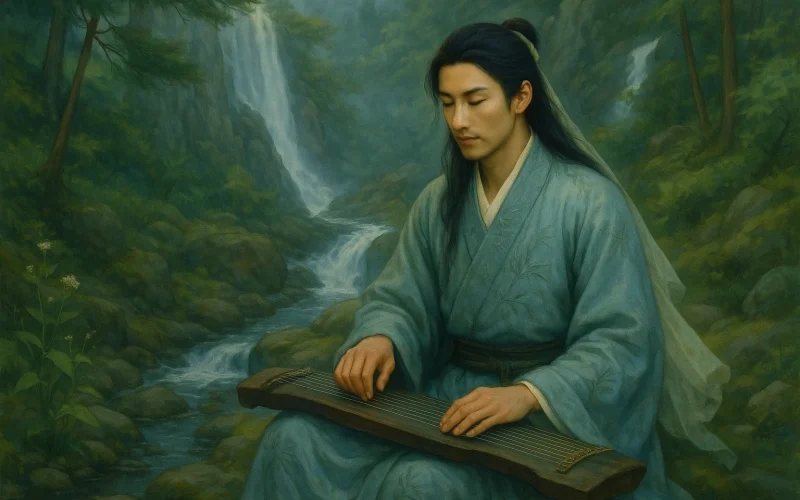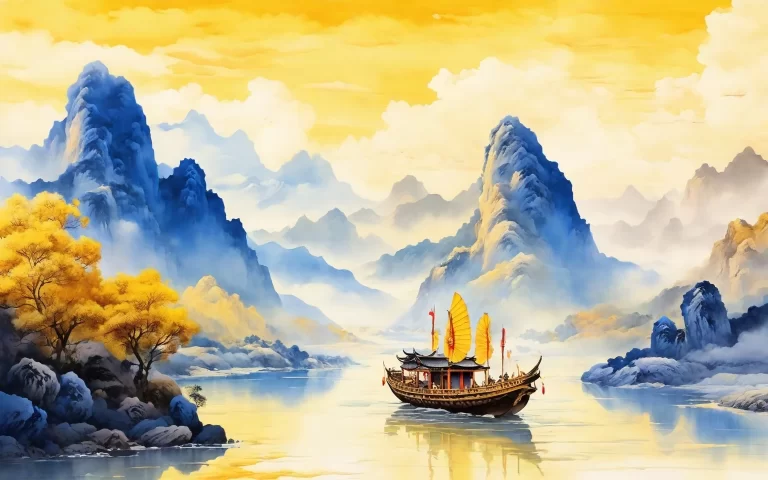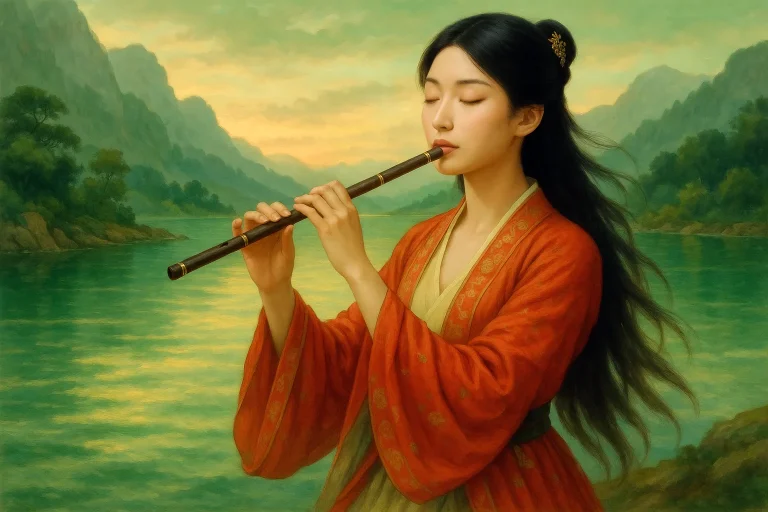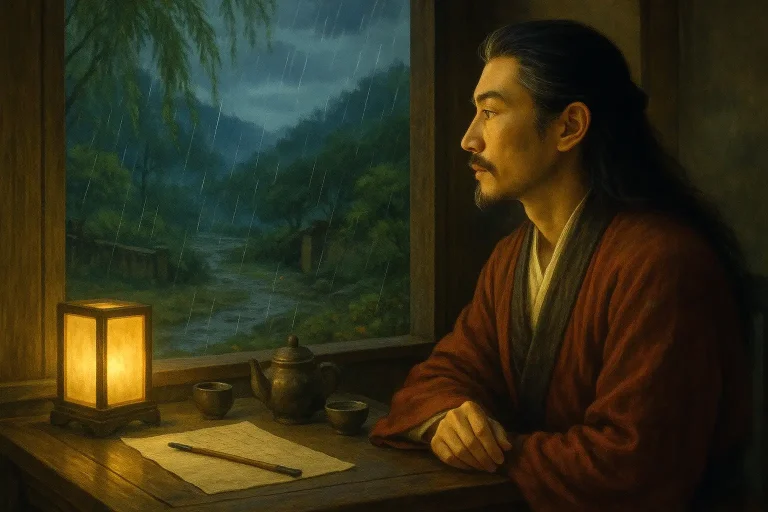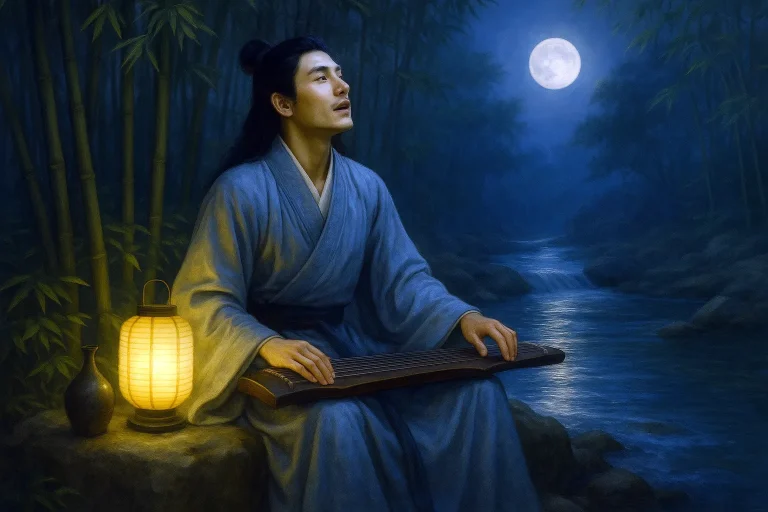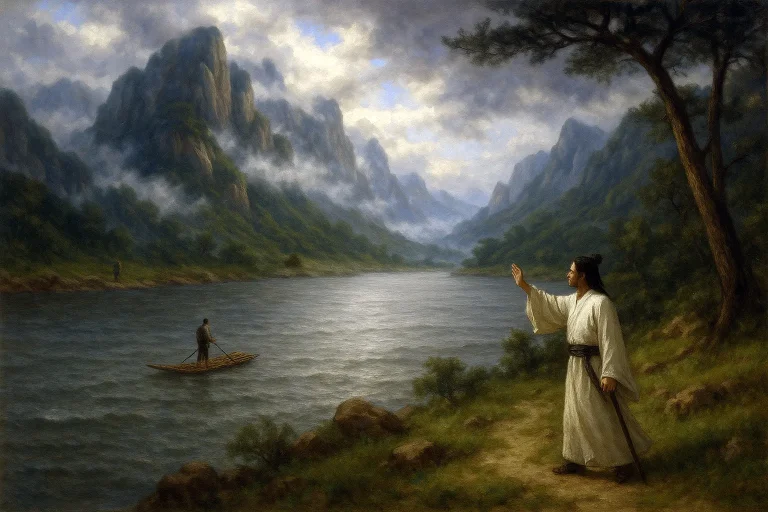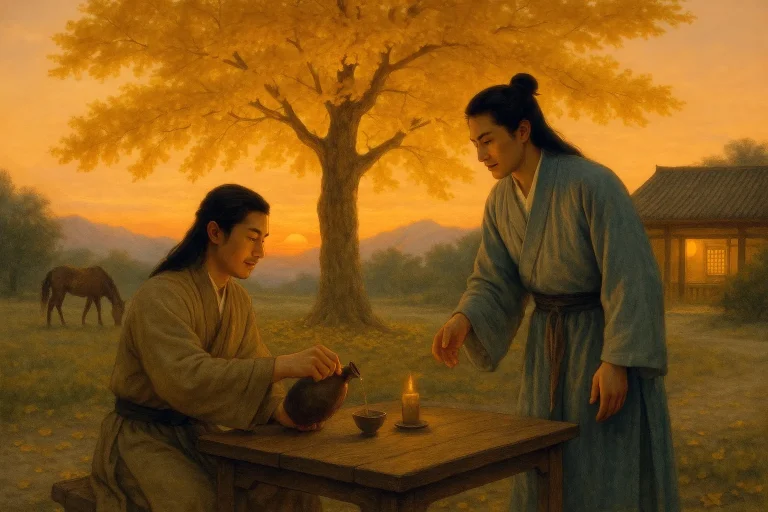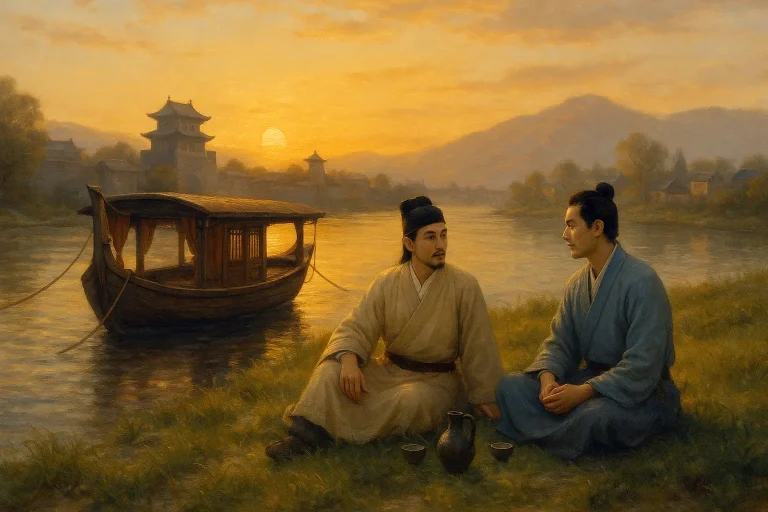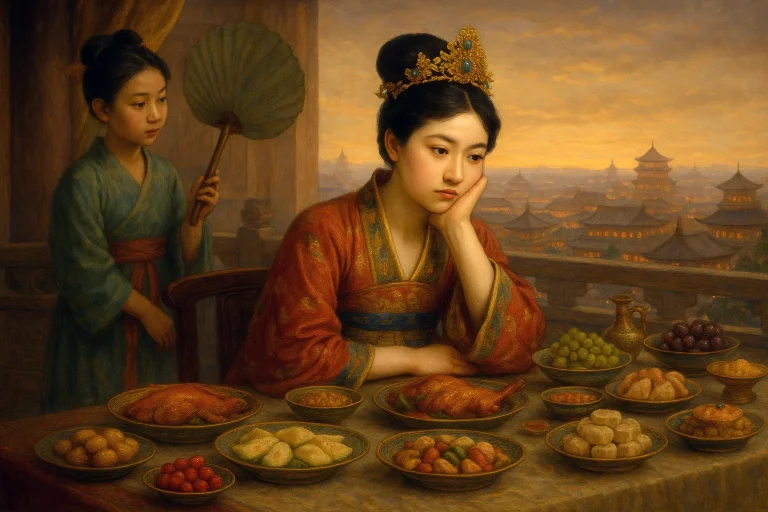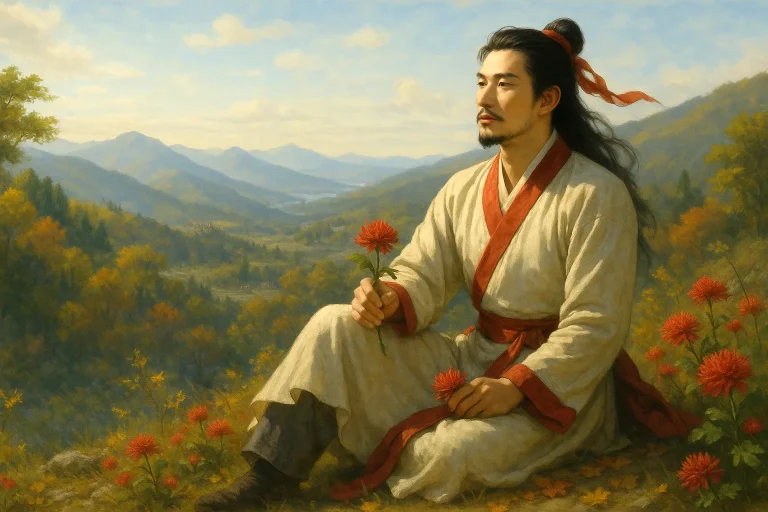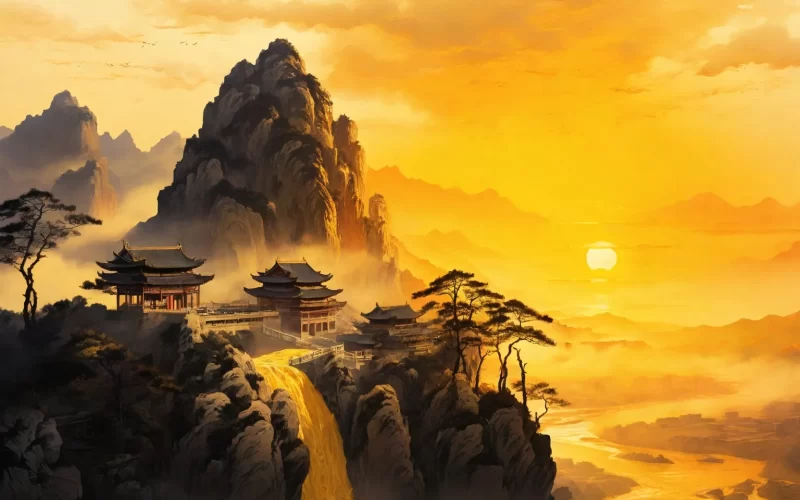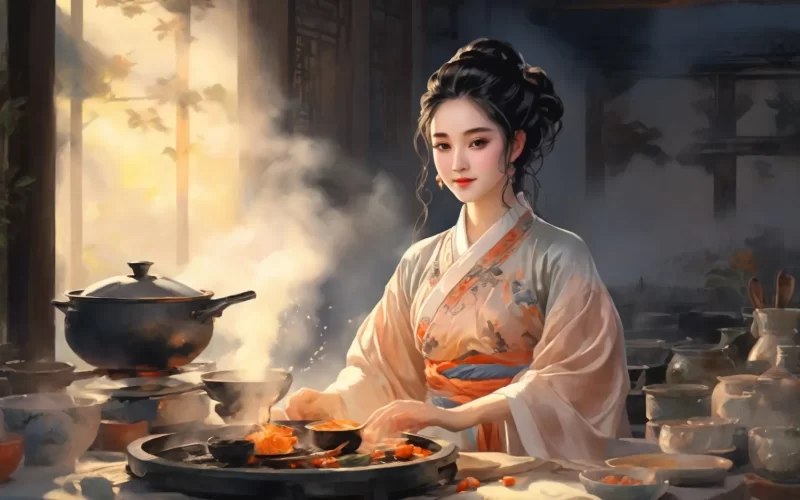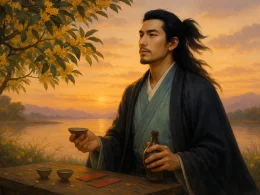Wang Wei (王维), 701-761 A.D., was a native of Yuncheng, Shanxi Province. Wang Wei was a poet of landscape and idylls. His poems of landscape and idylls, with far-reaching images and mysterious meanings, were widely loved by readers in later generations, but Wang Wei never really became a man of landscape and idylls.
王维
wáng wéi
Well-known works
Simple experience
When Wang Wei was a young man, he was very intelligent, good at both poetry and painting, and learned a great deal. At the age of fifteen, he left his hometown to seek advancement in Chang'an and Luoyang, and was successively favored by princes and nobles, such as the King of Qi and the Princess of Yu Zhen. In 721 A.D., he received his bachelor's degree and was appointed as the Prime Minister of Taile. When he first entered the political arena, Wang Wei, a scholar and a brilliant poet, was like a dazzling new star. Perhaps due to the overly bright light of the scholar, he soon became embroiled in the political whirlpool of the capital, and was relegated to the post of Jeju's warehouseman in the same year, which, by modern analogy, is the equivalent of a Jeju storekeeper.
After his term as a “storekeeper” expired, he stayed at home and was not promoted to the position of right collector until 735 AD, when Zhang Jiuling came to power.
When Zhang Jiuling was ostracized by Li Linfu in 737 A.D. and moved away from the center of the imperial court, Wang Wei felt very frustrated and retired. On the one hand, he was tired of the officialdom; on the other hand, he could not make up his mind to resign from his post, and lived a half-official, half-retired life during the Tianbao years. Unfortunately, when the An Shi Rebellion broke out, Wang Wei was captured by the rebels in Chang'an and was forced to take up a false post. After the war subsided, his brother, Wang Jin, was meritorious in the rebellion, and submitted a petition willing to cut his brother to atone for his sins, coupled with the fact that Wang Wei was captured, he had composed a poem “condensing blue pool” to think of the imperial court, so he was excused. In his later years, Wang Wei served as the right minister of the Imperial Household, and for this reason, he was called “Right Minister Wang” by later generations.
It was not Wang Wei's ambition to live in seclusion, especially during the flourishing days of the reign of Emperor Kaiyuan, when the society was thriving and Wang Wei was in his prime, he was looking for an opportunity to show his talent, but fate seemed to play a joke on him by letting him waste more than ten years, and then at the end of the flourishing days, he was given the opportunity to serve the country. In the late years of Emperor Xuanzong, the scenery of the flourishing world was especially present; during the years of Emperor Suzong, the scholars were eager for the revitalization of the court. Under such a historical opportunity, the landscape garden was not a place to settle down for the scholarly men who were full of talent and knowledge, but only a place to cultivate his body and mind, and to relieve his depression.
Literary achievements
Wang Wei's early poems are full of youthful heroism. He wished to serve his country, and his poems in the form of songs and lines, such as “The Young Man's Journey”, “The Song of the Eboshi Gate”, and “The Journey of the Swallow Branch”, were impassioned; his border poems, such as “The Journey of the Envoy to the Seaside”, “Sending Liu Sizhi to the West of the Anxi”, and “Sending the Judge Ping Tanyan”, were majestic and open; and his landscape poems, such as “The End of the Southern Mountain”, “The Linfan of the Han River”, and “The Huayue”, were elegant and beautiful.
Wang Wei's youthful vigor gradually sank in the current situation. After Zhang Jiuling was sidelined by the treacherous Li Linfu, Emperor Xuanzong's administration became increasingly corrupt, and Wang Wei retired to Rim Chuan to write Rim Chuan Jie, using the allusion to vanilla and beauty in the Chu Rhetoric, and using the phrase “Gui Zun welcomes the emperor's son, Du Ruo gives a beautiful woman” to express his wish, hoping that he could embrace a high and pure character and usher in a bright ruler. However, Emperor Tang Xuanzong did not come to his senses, and Wang Wei became more and more a believer in Zen and Buddhism. Not only Wang Wei, but also Wang Changling, Pei Di, and many other virtuous men and women sought the way of liberation. The fact that the scholars were looking for the way of liberation shows that the society at that time was already in a state of terminal illness. After the Anshi Rebellion, Wang Wei was able to live in the capital, and his poems were no longer as sharp as when he was a teenager, and his poems were more elegant, shallow and deep, and sometimes a bit old and decadent.
The genius poet could not escape the fluctuation of the times, and he was scrubbed by the years.






